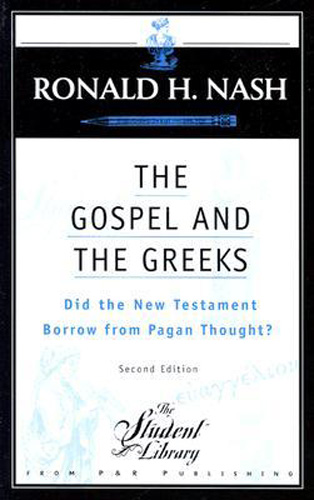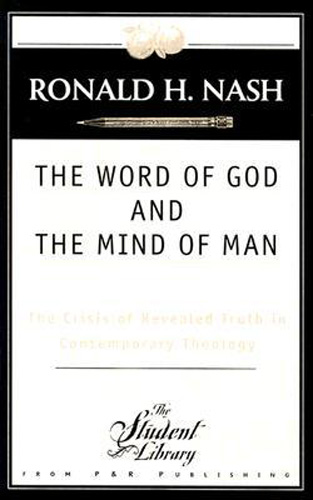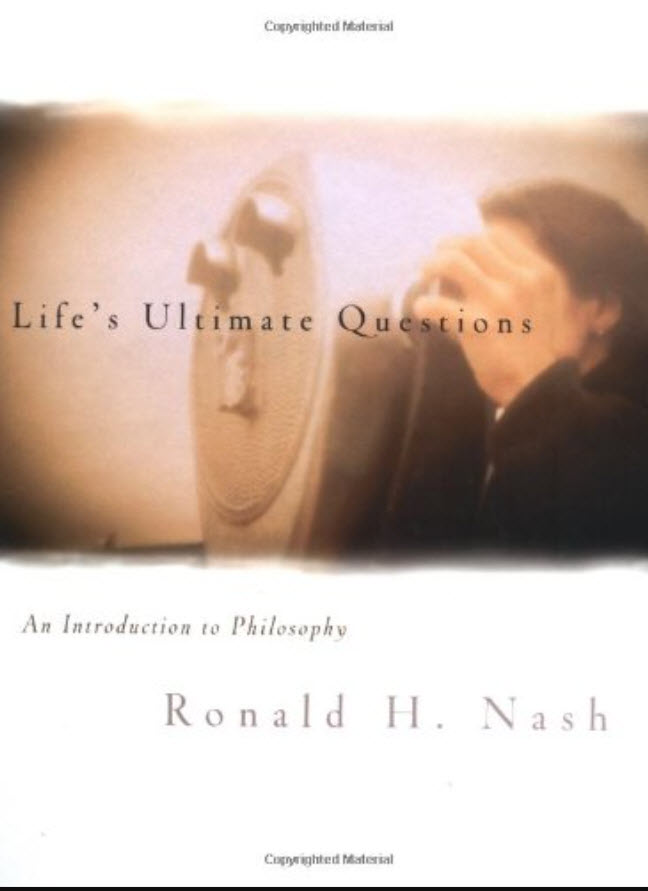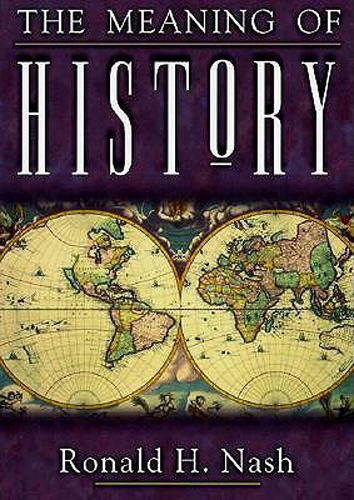History of Philosophy and Christian Thought - Lesson 47
Nietzsche
Nietzsche proclaimed that, "God is dead." His cure was to live life knowing there is no ultimate meaning. Kierkegaard emphasized a worldview based on true faith.

Nietzsche
Nineteenth-Century Philosophy
Part 8
IV. Nietzsche and Kierkegaard
A. Diagnosis - "God is dead."
B. Cure
1. Nietzsche
a. Naturalism
b. Superman - Godless alternative
2. Kierkegaard
a. Christian worldview based on true faith
b. Return to New Testament Christianity
Introduction
0% Complete- 0% Complete
Thales and Anaximander were two philosophers in the sixth century BC that lived in Miletus.
0% Complete - 0% Complete
Heraclitus and Pythagoras lived into the 5th century BC.
0% Complete - 0% Complete
Any worldview addresses the subjects of God, ultimate reality, human knowledge, ethics and human persons.
0% Complete - 0% Complete
Fundamental beliefs of a naturalistic worldview is that nothing exists outside the physical universe and that all things evolved.
0% Complete - 0% Complete
Plato was a student of Socrates and lived into the fourth century BC. He opposed hedonism, empiricism, relativism, materialism, atheism and naturalism.
0% Complete - 0% Complete
Plato described the universe as having three levels: the world of particulars, the world of forms, and the form of the good.
0% Complete - 0% Complete
Plato's view of the universe was dualistic.
0% Complete - 0% Complete
One of Plato's fundamental arguments is that the human soul is immortal.
0% Complete - 0% Complete
Evaluation of Plato's arguments and comparison of Plato's philosophy with biblical theology.
0% Complete - 0% Complete
Empiricism teaches that all human knowledge arises from sense experience. Rationalism teaches that some human knowledge does not arise from sense. experience
0% Complete - 0% Complete
Aristotle was a student of Plato and lived in the fourth century BC.
0% Complete - 0% Complete
Aristotle rejected Plato's doctrine of two worlds.
0% Complete - 0% Complete
Discussion of Aristotelian philosophy as it relates to the incarnation.
0% Complete - 0% Complete
Aristotle's philosophy as it relates to attributes of God and fundamental assumptions about psychology.
0% Complete - 0% Complete
Aristotle made a distinction between passive intellect and active intellect.
0% Complete - 0% Complete
Discussion of the strengths and weaknesses of the law of non-contradiction.
0% Complete - 0% Complete
Discussion of the nature and substance of matter.
0% Complete - 0% Complete
Hellenistic philosophy was an approach that was popular from the fourth century BC to the fifth century AD.
0% Complete - 0% Complete
Stoics were determinists who believed in living according to nature.
0% Complete - 0% Complete
Hedonism emphasized pleasure as the greatest good. "Eat, drink and be merry for tomorrow we might be dead."
0% Complete - 0% Complete
Philo's philosophy was based on a synthesis of Stoicism and Platonism.
0% Complete - 0% Complete
Implicit "Logos" Christianity is an underlying theme in the book of Hebrews.
0% Complete - 0% Complete
Plotinus lived in the third century AD and is considered the founder of Neoplatonism.
0% Complete - 0% Complete
Augustine is a Latin church father, is considered by many to be one of the most important figures in the development of Western Christianity.
0% Complete - 0% Complete
Augustine wrote Confessions as an autobiographical work to record his experience as a sinful youth and his experience becoming a follower of Christ.
0% Complete - 0% Complete
Augustine wrote to refute some heresies of the day by focusing on the concepts of faith and reason.
0% Complete - 0% Complete
Augustine writes about the problem of evil and describes evil as the absence of good.
0% Complete - 0% Complete
Augustine writes to refute Pelagianism by focusing on the biblical teaching about sin.
0% Complete - 0% Complete
Augustine writes to refute Donatism.
0% Complete - 0% Complete
The fundamental idea of skepticism is that no one can know anything. Augustine this statement contradicts itself because the skeptic is claiming that you can know that you can't know anything.
0% Complete - 0% Complete
When Augustine wrote "The City of God," he had a linear view of history.
0% Complete - 0% Complete
In Augustine's theory of knowledge, he says that eternal reason and human reason are two different levels of reason.
0% Complete - 0% Complete
Augustine was personally convinced of the importance of divine illumination.
0% Complete - 0% Complete
The intellectual background of Thomas Aquinas was influenced by the discovery of ancient manuscripts, the rise of universities, the rise of religious brotherhoods and the rise of Muslim philosophy.
0% Complete - 0% Complete
Aquinas describes faith as whatever a human can know through special revelation, and reason as whatever a human can know outside of special revelation.
0% Complete - 0% Complete
Aquinas attempts to prove God's existence.
0% Complete Aquinas describes four kinds of law as eternal, divine, natural and positive.
0% Complete- 0% Complete
The rationalists and empiricists set the stage for Kant and other philosophers of the modern era.
0% Complete - 0% Complete
Kant argued that moral requirements are based on a standard of rationality he dubbed the “Categorical Imperative."
0% Complete - 0% Complete
Kants two worlds are the phenomenal world and the noumenal world.
0% Complete - 0% Complete
Discussion of criticisms and questions about Kant's ideas.
0% Complete - 0% Complete
Similarities between Kant's ideas and postmodernism.
0% Complete - 0% Complete
The dialectic is a central idea in Hegel's philosophy.
0% Complete - 0% Complete
Ideally, Marxism begins with class struggle, then revolution, dictatorship of the proletariat, withering away of the state, and a utopian classless society.
0% Complete - 0% Complete
Discussion of four faces of Marxism.
0% Complete - 0% Complete
Nietzsche proclaimed that, "God is dead." His cure was to live life knowing there is no ultimate meaning. Kierkegaard emphasized a worldview based on true faith.
0% Complete
In this class, you will explore the rich history of philosophy and its relationship with Christian thought. The course begins with an introduction to the definition and importance of philosophy in Christian theology. You will then delve into the evolution of philosophical thought from the Pre-Socratic era, through the Classical Greek philosophers, and into the Hellenistic period. As you progress, you will discover how early Christian thought emerged and developed during the Patristic period, with a special focus on Augustine. The class continues with an examination of medieval Christian thinkers, such as Anselm and Thomas Aquinas, and concludes with an analysis of modern philosophers like Descartes, Kant, and Kierkegaard, and their influence on contemporary Christian thought.
Two other books that are recommended reading for this class are Confessions by Augustine and Phaedo by Plato.
Recommended Books
The Gospel and the Greeks: Did the New Testament Borrow from Pagan Thought?
Examines contemporary claims for Christian dependence on Hellenistic philosophy, Greco-Roman mystery religions, and Gnosticism. He finds the case for dependence in the...

The Word of God and the Mind of Man
The last two centuries of Christian theology are the record of an evolving attack on the role of knowledge in the Christian faith. The purpose of this book is to challenge...

Life's Ultimate Questions: An Introduction to Philosophy
Life's Ultimate Questions is unique among introductory philosophy textbooks. By synthesizing three distinct approaches

The Meaning of History
The Meaning of History is a concise look at the meaning of the history of the world from the viewpoints of major historians and philosophers. By examining the individual...

Dr. Ronald Nash
History of Philosophy and Christian Thought
th620-47
Nietzsche
Lesson Transcript
I cannot give you the date of Nietzsche's birth, but he died in 1900. Let me tell you something very tragic about Nietzsche. His father was a Lutheran pastor. And I'll be very frank. Few things depress me any more than people who are born in a presumably Christian home who not only abandon the Christian faith but become enemies of That really grieves me, really grieves me. And it happens so often. I don't I guess I've mentioned to you that perhaps the most famous atheist in all of Britain these days, Antony flew, was born to Christian parents. But Nietzsche's father died in his youth. In fact, somewhere I read a prayer or two written by the teenage Friedrich Nietzsche, and it was a very moving prayer from a young man who seems to be on his way to a relationship with God, but never again that that that ended. Nietzsche went off to the university. Now, probably Nietzsche's most famous statement is the statement God is dead. And what we handed out today was an excerpt from his essay called The Mad Man. And I don't have normally I try to read this whole thing, but if I did, my my remaining 15 minutes would be gone. But it's a parable of a mad man who shows up in a little German village when he says, I'm looking for God. And all of the skeptics in the town square begin to mock him and ridicule him. And very much like the passage from the Old Testament, where Elijah ridicules the prophets of Bayle, who are calling upon their gods to start the sacrificial fire.
[00:02:34] And Elijah says, Why don't you yell a little doubt, or maybe your God are asleep, maybe he's on a vacation. Why don't you cut yourselves, spread a little blood around, you know, kill somebody. But then the mad man turns and he suddenly says, God is dead. And he goes into a church and they sing a mass to God. Okay. I mean, this is utter blasphemy. And the mad man says, What are these churches? But the sap occurs of God. Now, I am here to tell you that the famous statement God is dead is not in itself a declaration of Nietzsche's atheism. God is dead. Nietzsche was an atheist, but when he said God is dead, he wasn't saying there is no God. He was communicating a different message. Incidentally, Nietzsche is a hero to the postmodernists. They got some weird heroes, but he wasn't communicating something and upon deconstructionist cannot do anyway. He wasn't communicating atheism. Here's what he was doing. Okay. And you're going to see this in my article. Nietzsche believed that Western civilization had a foundation. Get this in your notes. Western civilization, which we could also call Christendom, Christendom, Western civilization had a foundation. And that foundation was the biblical worldview, the Christian worldview. And even today, in countries like the United States, as godless and immoral as the United States is, it is still grounded upon a foundation that traces back to its Christian roots. Here's the foundation of Western civilization. Now, when Nietzsche said God is dead, what he was saying was that Western civilization no longer had a foundation. I'll tell you, when I first discovered this, it was 1956. I was 20 years old. I had gone to Europe and Britain to speak in evangelistic meetings. And we came to France.
[00:05:22] And I had never seen such a godless, God hating nation in my life as France. And I'm sure it's even worse today. And England was no better. Britain was no better. Godlessness. Okay. Now, here was Nietzsche's concern. What is the only way in which anybody can kill God? That's the question. Can you slip up behind him and stab him in the back? Can you blow them up with a nuclear weapon? Can you blow them away with a machine gun? How can you kill God? The only way you can kill God is by ceasing to believe in God. Western Christendom no longer believes in God and no longer believes in the Christian worldview, but is unconscious of that. And when that when when Western civilization finally does become conscious of the fact that there is no longer any foundation for its culture and its civilization, all will collapse. And then Nietzsche, of course, then develops the theory of the super man as a secular, godless alternative to the Christian foundation of Western civilization. Suppose we can see, just to bring this to a close, for the sake of argument, that Nietzsche was right when he proclaimed that God is dead. And by that we mean that Western civilization no longer rests upon the foundations of the Christian worldview. And suppose that it is only now, a century later that we, the people in Nietzsche's parable, are gradually becoming conscious of the message of Nietzsche's madman that God is dead and that we have killed him. What all this reduces to, of course, is the claim that the Western world, the world we still call Christendom, is functionally godless. The question before us then is simply this What are we going to do about it? Nietzsche's philosophy points us in one direction a godless direction.
[00:07:32] But suppose, suppose we forget Nietzsche for a while and consider the remarkably similar views. Similar? That is up to a point of Nietzsche's 19th century predecessor, Soren Kierkegaard. Much can be learned by trying to see Kircher's thought in light of what has already been said of Nietzsche. While Kircher's problem was different, it can nonetheless be expressed in Nietzsche and terms. One good place to begin an examination of Kirk Gore's views is in a section of his book Attack upon Christendom. This section is titled, quote, The Religious Situation. Here are Kirkuk. God's words, quote, What we are what is called a Christian nation. He's referring, of course, there to Denmark. We are what is called a Christian nation. But in such a sense that not a single one of us is in the character of the Christianity of the New Testament, any more than I am, who again and again have repeated and do now repeat that I am only a poet. That is where Christians are Name only the illusion of a Christian nation is due doubtless to the power which number exercises over imagination. I have not the least doubt that every single individual in this nation, Denmark, will be honest enough with God and with Himself to say in solitary conversation. If I must be candid, I do not deny that I am not a Christian in the New Testament sense. If I must be honest, I do not deny that my life cannot be called an effort in the direction of what the New Testament calls Christianity, in the direction of denying myself, renounced in the world, dying from the world, and so on. Still, quoting from Kircher, I have not the least doubt that everyone will, with respect to ten of his acquaintances, let us say, be able to hold fast to the view that they are not Christians in the New Testament sense of the word and that their lives are not even an effort in the direction of becoming so.
[00:09:35] But when there are 100,000 such people, one becomes confused. Now, that's the end of the quote. The point is Kirkuk. Gore was distressed by the condition of Christianity in his native Denmark. He was convinced that the state church of Denmark, to which most Danes belonged from birth, had departed from the teachings of early New Testament Christianity. Consequently, not a single citizen of Denmark, the so-called Christian nation of Denmark, was not a Christian in the New Testament sense of the word. In a later section of his book that's entitled A Proof that the New Testament is No Longer True. And here Kirkegaard is using irony. Here's what he writes quote, In the New Testament The savior of the world, our Lord Jesus Christ represents the situation thusly. And here he quotes from the Gospels the way that lead it until life is straight, the gate is narrow, few be they that find it. Now, on the contrary, Kirkegaard writes, to speak only of Denmark. We are all Christians. The way is as broad as it can possibly be. The broadest in Denmark, since it is the way in which we are all walking, besides being in all respects as convenient, as comfortable as possible. And the gate is as wide as it possibly can be wider. Surely a gate cannot be than that through which we are all going on mass. That's the end of Kirkuk's quote. The point is this While Jesus had taught that the way to the Kingdom of God was a narrow road traveled by few, the road in Denmark was as wide as the entire nation and no one was excluded. The New Testament stressed the need for conversion, sacrifice and personal faith. But the Danish state church taught that everyone, by virtue of baptism at birth, was a Christian.
[00:11:29] If the state Church of Denmark is correct, then Kirkuk or insisted the New Testament is no longer true. But if Jesus in the New Testament are correct, then Denmark is not a Christian nation and the state Church of Denmark is no longer a Christian church. And the members of the state church are not Christians. They are citizens of something else. Call it, quote, Christendom. When everyone is a Christian, Kirker goes on to say, Then Christianity does not exist. Hence, in his own way, Kirkuk. Gore was really saying that so far as Denmark was concerned, God was dead. Kirkuk Gore would have regarded Nietzsche's parable of the mad man as an apt picture of the religious bankruptcy of his own land. And to make things worse, because of its de-emphasis on faith, personal commitment and conversion. The Danish church was the chief culprit, the form of religion that existed in Kirkuk, as Denmark should no longer be called Christianity. It was a totally different religion. Call it Christendom now. The conditions noticed by both Kirkuk War and Nietzsche are even more aggravated in late 20th century Christendom, or now early 21st century Christendom. Most men and women in the West go on acting as if God does not really exist. God is dead. Let us not forget that all or almost all of the Nazi perpetrators of the Holocaust had their names on some church roll or other, but under no reasonable conditions could such people be viewed as Christians for all practical purposes. God is dead in the part of the world that is usually thought of as Christian. If Kirkuk or a Nietzsche were somehow to return for a while, they would undoubtedly agree on their diagnosis of the spiritual and religious condition of the West.
[00:13:20] But while they would agree on the diagnosis, they would surely disagree as to the cure. Nietzsche, as we have seen, was willing to destroy the old foundations of morality and substitute a new naturalistic basis of value. Had Kirkuk or lived to see Nietzsche's proposals, he would have objected. While you may be able to save some lives by amputating an arm or leg, he would argue, you can never save a life by removing the patient's heart. If God is dead, the only way to save society from nihilism is to confront modern men and women with their unbelief and secularism and challenge them to recover and reaffirm their faith in the living God. If men and women no longer believe in God, it will not do to bury God. One must bring men and women to a dynamic and living faith, which, for Kirkuk, can only happen by means of a return to New Testament Christianity. Anyone familiar with the intellectual climate of our day will recognize that Nietzsche and Kirkuk Gore represent two major options confronting us. We stand at the crossroads in a world to which God is functionally dead. Some, like Marx and Sartre, at least Sartre praying prior to his last hours on Earth and duty and still others urge us for different reasons, of course, to abandon the supernatural. Assumptions of the past of the Christian worldview and ground our lives, our values and our society on naturalistic premises, on the worldview we call naturalism. Others convinced that naturalism is a false worldview and afraid that it can only lead to the very nihilism that terrified Nietzsche urged to return to the controlling assumptions of a Christian worldview. But as Kirkegaard argued, even this is insufficient unless accompanied by a genuine personal religious faith.
[00:15:17] Nietzsche and Kirkegaard each made their choice, as indeed must each of us. The option is a momentous one and fraught with dangerous consequences should we order and take the wrong turn? The work of both Kirkegaard Nietzsche, then, can help us see that no philosopher looks at the human condition in isolation from underlying views about God and reality from their worldview. For one of our two philosophers, humans are animals rising from their primitive beginnings. Humans must be careful not to stop where they are now, freed from the shackles of a decadent morality and religious superstition. Nietzsche says they must proceed to build a society without God, a society based on naturalistic principles and the assertion of the will to power. For our other philosopher Kirk, Igor Mann is a pitiful being estranged from his creator and too blind even to see his unbelief. Kirkegaard belief in the objective truth of Christian theism and the power of that truth to transform humans existentially points to an option that remains alive at the beginning of the 21st century. As numerous publications attest, it is a live option. Intellectually, our spirit has yet to see what the citizens of modern Christendom can achieve morally and spiritually, if they but renounce the death of God in their personal lives and seek to work out the fruits of their salvation in society. Well, that's the end of this course. I hope it has been a help and a blessing to those who've listened to it.